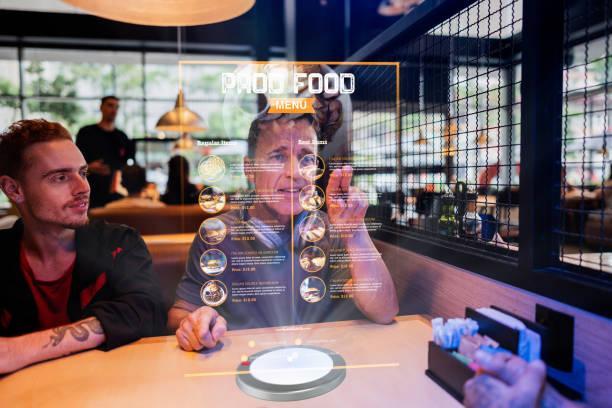The Internet of Things (IoT) is transforming our daily lives in ways we never imagined. With smart devices connecting seamlessly, this technology enhances convenience, efficiency, and opportunities across various sectors. As we dive deeper into this fascinating topic, you’ll discover how IoT is paving the way for a smarter future.
“`html
What is the Internet of Things (IoT)?
The Internet of Things (IoT) refers to a vast network of physical devices connected to the internet, collecting and sharing data. These devices range from everyday household items, such as refrigerators and thermostats, to industrial machines and city infrastructure. The concept is not just about connecting devices; it’s about integrating them into our daily lives and making them smarter.
IoT devices communicate with each other via the internet, allowing them to share data and perform tasks without human intervention. For example, a smart thermostat can learn your heating preferences and adjust the temperature automatically. This adaptability makes IoT systems incredibly efficient, often improving productivity and reducing operational costs.
IoT has three main components: devices and sensors, connectivity, and data processing. Devices and sensors gather data from their surroundings. Connectivity allows these devices to transmit this data to the cloud or other devices. Finally, data processing involves analyzing the data to derive meaningful insights and actions. This holistic approach to data management is what sets IoT apart from other technological advances.
How IoT is Changing Industries
IoT is reshaping various sectors by introducing automation and enhancing data-driven decision-making. Here are some industries that are experiencing significant transformations due to IoT:
- Healthcare: IoT devices can monitor patients’ vital signs in real-time, allowing for timely interventions and better management of chronic diseases. Wearable devices, such as smartwatches, also facilitate this monitoring.
- Manufacturing: Smart factories leverage IoT to minimize downtime and enhance productivity. Machines equipped with sensors can predict maintenance needs, reducing the risk of unexpected failures.
- Transportation: Connected vehicles communicate with transportation networks, improving traffic management and safety. Fleet management systems utilize IoT to optimize routes and monitor vehicle conditions.
- Agriculture: IoT agricultural tools monitor soil moisture, crop conditions, and weather data to help farmers make informed decisions. This technology contributes to higher crop yields and sustainable farming practices.
- Smart Cities: Urban areas implement IoT to improve infrastructure, such as smart meters, traffic management systems, and waste management solutions, leading to better resource allocation and enhanced quality of life.
The Benefits of Implementing IoT
Adopting IoT solutions can be highly beneficial for businesses and consumers alike. Here are some key advantages:
- Increased Efficiency: Automation reduces the time spent on manual tasks, allowing businesses to focus on strategic initiatives. IoT systems identify bottlenecks and streamline processes.
- Cost Savings: By monitoring resource consumption, companies can minimize waste and lower operating costs. Predictive maintenance also reduces repair costs and equipment downtime.
- Improved Decision-Making: IoT provides real-time data that aids in making informed decisions. Enhanced insights lead to innovation and optimization across business operations.
- Enhanced Customer Experience: Businesses can tailor their offerings using data from IoT devices. This connectivity fosters stronger customer relationships and increases customer satisfaction.
- Better Resource Management: IoT facilitates efficient use of resources, from energy consumption in buildings to water use in agriculture. This sustainability aspect is increasingly crucial in today’s landscape.
Future Trends in the Internet of Things (IoT)
The future of IoT looks promising, with several trends set to shape its evolution:
- Artificial Intelligence Integration: AI will enhance the capabilities of IoT devices, enabling smarter decision-making and predictive analytics. This integration can lead to more intuitive systems that learn and adapt over time.
- 5G Connectivity: The introduction of 5G networks will significantly boost IoT performance, facilitating higher data transfer speeds and supporting a larger number of connected devices.
- Edge Computing: Instead of sending all data to the cloud, edge computing processes data closer to the source, reducing latency and improving efficiency. This trend will be crucial for time-sensitive applications.
- Enhanced Security Protocols: As IoT devices proliferate, security is paramount. Future developments will emphasize advanced security measures to protect data and privacy.
- Interoperability Standards: Establishing standardized protocols is essential for seamless communication among devices from different manufacturers. This move will enhance the effectiveness of IoT ecosystems.
With these advancements, IoT is expected to become even more ingrained in our lives, creating a more connected, responsive, and intelligent world.
If you want to make your business thrive in the digital landscape, look no further! At 50us Digital Marketing Agency, we specialize in digital marketing solutions tailored to your unique needs. From creating stunning websites and high-converting sales pages to effective eCommerce platforms, blogs, and efficient paid traffic management, we have you covered. Let us help you attract more clients and boost your sales through cutting-edge strategies. Visit our website at 50us Digital Marketing Agency and follow us on Instagram @agency50usdigital to stay updated on the latest marketing trends and tips. The smarter future starts with you—partner with us today!
“`
















